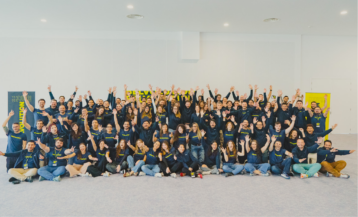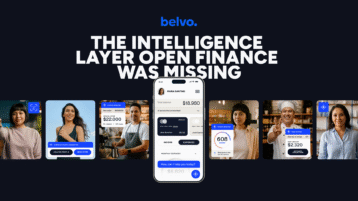We are thrilled to announce a strategic partnership with Visa to support the acceleration of open finance products and solutions across key markets in Latin America.
Belvo and Visa have announced today their strategic partnership to support the acceleration of open finance products and solutions across key markets in the region, which empowers consumers and provides them with more choices.
Under the agreement, Visa and Belvo will work together to support new payment flows, integrate both Visa and Belvo’s APIs for richer consumer experiences, and develop new solutions around areas such as identity verification. In addition to supporting new fintechs and developers, Visa will work with Belvo and its traditional bank clients to create solutions for new market segments. For instance, if a bank in the region wants to create a new application to reach a niche segment like gig economy drivers, Visa and Belvo can work together to bring this to life via Belvo’s open finance APIs.
“This partnership will be instrumental to keep expanding the reach of our platform and continue working on our mission to provide a truly pan Latin American solution that can help banks, fintech companies, and other financial institutions across the whole region unlock the potential of Open Finance,” said Pablo Viguera, Belvo’s co-CEO, and cofounder.
“We are eager to continue improving our product by learning from Visa’s experience in creating a successful network of financial partners as we build our own financial data and payments ecosystem for financial innovators. Going forward, we’re excited to deepen our collaboration efforts with the financial sector and to help more institutions extract value from a wider range of financial data sources by leveraging our existing connections, developer-friendly tools, best-in-class infrastructure, and security practices”
Pablo Viguera, Belvo’s co-CEO, and cofounder.
Belvo’s products enable consumers to conveniently share their financial information and other non-bank data with over 100 regional apps and services such as Jeeves, Rappi, Mobills, Ferratum, Higo, Creditea, and AskRobin. Consumers rely on these apps and services to help plan their spending, manage their personal finances, borrow money, and run their small businesses. For example, when a consumer in Latin America uses a digital platform to request a personal loan, that platform can use Belvo’s APIs to easily and securely extract and analyze the consumer’s data. The company can use bank data to determine the loan’s tenure, interest rate, or even the best loan product for that specific consumer.
“Consumers and businesses have embraced digital means at speed since the onset of the pandemic, and central to this uptick are open finance ecosystems. We believe open finance has the potential to unleash great collaboration across all payments participants including, financial institutions, merchants, fintechs, neo-banks and technology providers,” said Romina Seltzer, Senior Vice President of Products & Innovation for Visa Latin America and the Caribbean.
“Belvo has been a leader in open finance efforts in the region for the last two years and has established great connectivity with many of the key financial players in our region. We look forward to partnering with Belvo to continue our mission of offering consumers and merchants more choice in how they manage their financial lives while continuing to support fintechs in the region to build more efficient and robust apps”
Romina Seltzer, Senior Vice President of Products & Innovation for Visa Latin America and the Caribbean.
Connectivity between financial institutions and developers has become increasingly important to facilitate consumers’ ability to use fintech applications. Belvo provides its clients with a fully integrated suite of Open Finance products, providing both data aggregation and enrichment tools to build next-generation financial products.
Belvo's API already provides connections with 50 financial institutions, covering more than 90% of personal and business bank accounts in Mexico, Brazil, and Colombia, as well as tax authorities and gig economy platforms.




